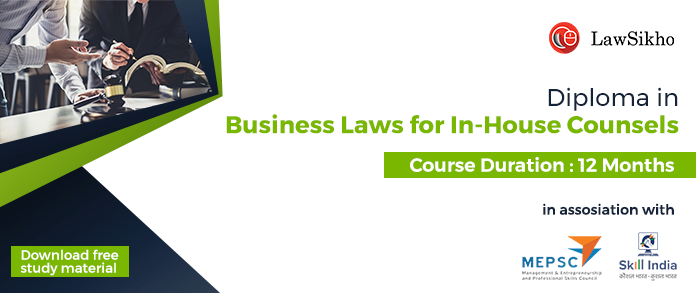This article is written by Akshita Rohatgi, a student at GGSIP University, New Delhi. It gives an overview of the qualifications, merits and difficulties faced by an Indian establishing a career as a CA in UAE and Saudi Arabia.
Table of Contents
Introduction
Gulf countries are an invigorating destination for Chartered Accountants from India. They have a flourishing economy, social security benefits and proximity to India. For the layman, that’s all there is. However, what makes this a challenging yet pragmatic prospect especially for CAs is that the syllabus and professional standards for them are the same across these countries. Ranging from international accreditations to practice in audit firms to the affiliation of the ‘Big 4’ with the local firms, there is no fundamental difference in practice. So Indians need not pursue extra courses exclusively for working in these countries.
So, what does it take to ‘make it’ there? And how can you gear yourself up for the challenge? Let’s have a look.
Skills needed
Recruiters at major firms do not care about the nationality or background of a person. Instead, they look at the skills one can contribute to them. Some of the qualities recruiters prefer in prospective employees are-
- Communication skills;
- Technical skills;
- Ability to blend into the culture of that firm.
One skill that can be easily defined, charted out and planned for easily is technical skills. Computerized systems will be used for purchase returns, sales, sales returns and tax. In a nutshell, they are needed for everything required to do the job. How efficiently one can work with these would matter.
Lowest-level firms, places that most people start from, often cannot afford high-end software and stick to using MS Excel. So, it is no overstatement to say that familiarity and expertise in Microsoft Excel is a hidden ace in this field. Linking sheets to formulas and conditional formatting and how acquainted one is with this software can make and break their career.
At a higher level, knowledge of some advanced software is essential. While different companies use different software, familiarity with some in the species would be beneficial.
Tally, Quickbooks pro, ERP systems, Sage, etc. are widely used in Gulf countries. While a basic idea of these systems is enough for an average applicant, practical experience can benefit them greatly. To increase their chances at the top firms, one can pursue a course in these software. Additionally, acquaintance with MS PowerPoint in making presentations of accounts and MS Word for day-to-day reports is also helpful.
People often ask when is the time to start working on this- university, post-graduation or while working? The answer is simple- These skills need time to develop, so the best time is now. To chart out the path and plan the future, working on skills generally and soft skills especially is important.
How to get the jobs?
The best way to get a reliable job is to work at a domestic audit firm that has branches abroad. After a few years of working at a firm, it may allow you to be sent for secondments. An employee can talk to a senior who has already completed an articleship and is working at another organization abroad in audit firms. The employee must ideally also do their research too to ensure the opportunity works for them.
While pitching oneself to a senior for secondments, these skills need to be highlighted. Now, when the company needs to send a person for secondment for a few months, the senior or the employee can put their name forward.
However, if there is no company to rely on, a person needs to chart out their path. Most Indians who choose this course go on a visit visa. If they find a job then the visa is converted into a long term one. Still, entering the market is perhaps the most difficult step for any emigrant. The entry-level job in most of these countries is accounting. If your articleship is from the ‘Big 4’- Deloitte, Ernst & Young (EY), PricewaterhouseCoopers (PwC), and Klynveld Peat Marwick Goerdeler (KPMG) or any other good firm, your chances will increase.
After grabbing the most accessible and easy-to-get job right after immigrating, people look for better jobs. The best place to look for job opportunities is on the very website of the firm a person would want to work at. Even so, at times, firms- big and small alike- use LinkedIn to announce vacancies. Apart from this, Naukri Gulf and Gulf Talents are popular sites to connect job- seekers to employees. A useful tip is to constantly keep updating your profile and CV so whenever an opportunity at the major firms opens up, you can grab it.
Job opportunities at audit firms are often for small periods- like 3 to 6 months. They have a reasonable chance of being renewed, however, it completely depends on how well one is working there.
In today’s context, the pandemic has opened up a unique work from home opportunity. So, this is the optimal time to look for this job. It offers experience and exposure while giving the person an opportunity to try and be able to blend with the cultural shock.
Qualifications needed to practice
By and large, Indians prefer going to either Saudi Arabia or the United Arab Emirates for a job. Thus, this section will focus on these two countries.
UAE
Accounting
A prospective CA in the UAE needs to enrol for a degree or diploma in a business-related course. The ideal ones for accountants are Bachelors in Economics and Finance, Bachelors in Business Administration, Bachelors in Economics, Bachelors in Accounting, Bachelors of Finance or Bachelor of Business Management. This is the minimum requirement.
After completing university, a person must get employment experience at an establishment. Additionally, a certification in accounting and finance is also preferable. A CPA (Certified Public Accountant), CFA (Chartered Financial Analyst) or ACCA (Association of Chartered Certified Accountants) qualification is preferable to be in hand for a good job.
To practice as a Certified Public Accountant (CPA) and be able to represent the public in UAE, one needs to pass the Uniform CPA examination. Often, firms demand this for getting a job. Most go through this because it adds hugely to their job prospects not just in the Gulf, but internationally. CPA is an internationally recognized and sought after certification and opens up better and higher-paying jobs for all.
The professional and educational requirements for a CPA license vary from state to state. After this, the takers need to continue professional education courses annually to retain their license.
With these qualifications in hand, it won’t take long to find a job. However, one needs to do their research to ensure it is the best for them. For more information, click here.
ICAI Dubai chapter
An accreditation worth mentioning is membership of the Institute of Chartered Accountants of India (ICAI) of Dubai chapter. This accreditation is easy to get for a qualified Indian CA. Membership of the Dubai ICAI chapter will allow a person to participate in the chapter’s activities which can open up more opportunities.
Someone based in the UAE can qualify as an Accredited CA (ACA) if they are a graduate, member of another Chartered Accountants professional body (like ICAI or ACCA) or even if they did not complete their schooling. Usually, people prefer to start with the ICAEW (Institute of Chartered Accountants in England and Wales) Certificate in Finance, Accounting and Business (ICAEW CFAB), and then complete the ACA qualification.
The eligibility criteria is simple-
- Any qualified CA;
- Who is a member of the ICAI;
- Is residing in the UAE; and
- Holds a valid residence visa; is eligible.
Additionally, those recently qualified CAs, who have a valid residence visa in the UAE, can become members by approaching the secretary of the Dubai ICAI chapter with proof of their credentials.
Auditing
To practice as an auditor in the UAE, the professional needs an audit license. Again, an accounting degree or a similar qualification is essential. There is also the need to demonstrate experience in the financial or the auditing sector.
To be a certified internal auditor in UAE, an applicant needs to pass the CIA (Certified Internal Auditor) exam. While they can still practice as an external auditor in the UAE without this certification, it greatly adds to job opportunities and salary prospects. Moreover, this certification is internationally recognized and sought after and will open up opportunities internationally.
The eligibility criterion for the exam requires an associate degree or higher and accepts its equivalents. Even if a person does not meet these requirements, an exemption is made for those who hold 7 years of experience in internal auditing or any equivalent field. They must have a ‘high moral character’, attested by a supervisor. Next, the most important step is passing all three parts of the CIA exam. There is a fixed period of 3 years given to meet certification requirements.
Finally, the candidate needs to regularly meet the Continuing Professional Education (CPE) as well as the experience requirement. The experience requirement differs across educational levels. For more information, click here.
Saudi Arabia
Accountants
According to Article 1 of Saudi Organization for Chartered Professional Accountants (SOCPA) Regulations, no person, natural or legal, shall be entitled to practice auditing unless their name is listed in the Register of Certified Public Accountants with the Ministry of Commerce.
For enrollment in the Public Register, one needs to be:
- A Saudi national.
- Of full legal capacity.
- Of good conduct; not convicted of doctrinal punishment or of an offence involving moral turpitude or breach of trust (unless rehabilitated) and not subjected to a disciplinary decision discharging him from governmental service, unless three years have elapsed since the taking of such disciplinary decision.
- Holder of a Bachelor’s degree in Accountancy or any other equivalent Certificate as may be deemed acceptable by the competent authorities.
- Having practical experience in the field of accounting after graduation, with any of the following bodies:
- Certified Public Accountants’ offices, duly approved by the Saudi Organization for Certified Public Accountants (SOCPA) provided for in the present Regulations and according to the conditions specified in the executive by-laws.
This period of service shall be for a minimum of three years, reducible to two years if the applicant is a holder of a Master’s degree in accountancy or an equivalent degree, and to one year if the applicant is a holder of a PhD in accountancy or an equivalent degree.
- Government bodies, companies or sole proprietorships according to the conditions and terms stipulated in the Executive By-laws.
Full member of the Saudi Organization for Certified Public Accountants.
Further according to Article 36B, a foreign accountant or partner shall stay in the country for a minimum of nine months each year and practice the profession. For additional information, click here.
Auditors
The provisions for auditors in Saudi Arabia are mostly similar to those in the UAE. A CIA certification will make a person eligible for better jobs and for practising as an internal auditor in the country. For more information, click here.
What jobs should you opt for?
The jobs that Indians usually opt for after migrating to the UAE are the most accessible ones- auditing and accounting.
Finance and higher posts like management are hard to get into when one is sitting in a foreign country. For this, prior experience in the country in comparatively lower-level jobs is essential. However, if a person wants to opt for general management, they have to start small. Starting at an audit firm, one can try to move to another industry or organization from there. Once the person has emigrated to the country and formed more connections there, this would become less cumbersome.
The scope of managing taxes for personal clients is lesser due to the lack of any income tax of earnings from employment, in the UAE and Saudi. Additionally, there is no corporate tax (though it might be levied in the future). The main tax is a value added tax (VAT) of 5%, as well as a 2.5% Zakt levied on businesses. Other than that, the main source of tax is customs duty. Similarly, the UAE does not levy income tax from income derived from employment on individuals. It does levy corporate tax on oil companies and foreign banks and excise tax on specific goods which are usually harmful to health or the environment. Again, value added tax (VAT) is levied on a majority of goods and services.
Salary
The hierarchy followed in UAE, as in most other places is- junior accountant, assistant accountant, accountant and senior accountant. As in October 2021, a fresh graduate accountant in the UAE earns between AED 2,500- AED 7,000 a month. This translates to 50- 143 thousand Indian rupees. On the other hand, a senior accountant receives more than 10,000 AED per month, which means more than 2 lakh Indian rupees. For an average CA at a Final level working in an audit firm, the salary would average around 86 thousand Indian rupees. Additional qualifications will increase the salary to between 1.5L- 1.7L INR.
In Saudi Arabia, as in October 2021, the average annual salary of an auditor is 165,000 SAR i.e. 33 Lakh INR. A senior auditor earns an average of 122 thousand SAR (24 Lakh INR) while a senior internal auditor earns 159 thousand SAR (32 Lakh INR). An accountant, on the other hand, earns an average of 82,000 SAR (16.3 Lakh INR) and a senior accountant earns SAR 100 thousand (19 Lakh INR).
However, a person needs to keep in mind the cost of moving, personal expenses, residence, official visits, etc. in this amount. These numbers are just to give a basic idea and it is wise to approach the number with caution.
Conclusion
Moving to a different country requires considering a lot of factors, weighing the pros and cons to see if it’s worth it, and doing more contemplation and research. There is no uniform answer for all, and while others can guide a person, the best course of action can be decided by the person. It is hoped that this article helped those reading it. However, the importance of conducting your research and reaching out to others who have practical experience can not be overstated.
Join us for an exclusive 3-day boot camp on – International Opportunities for Chartered Accountants / Company Secretaries in US Corporate Law from 9th to 11th October, 6-9PM.
Click here to register.
References
- https://www.payscale.com/research/AE/Job=Chartered_Accountant/Salary/964b5ca5/Dubai
- https://www.businessincorporationzone.ae/blog/start-an-accounting-audit-firm-or-tax-consulting-business-in-dubai/
- Chartered Accountant (CA) Salary in Saudi Arabia | PayScale
- Career opportunities in Gulf countries (caclubindia.com)
- Chartered Accountant (CA) Salary in Saudi Arabia | PayScale
- Chartered Accountant Salary in Saudi Arabia | PayScale
- Salary of CA & ACCA in Dubai & Middle East | Mr. Danish Naveed Supervisor GT Saudi Arabia : P Legacy – YouTube
- https://keydifferences.com/difference-between-accounting-and-auditing.html
- https://www.fixusjobs.com/how-to-become-an-accountant-in-dubai/
- https://www.businessincorporationzone.ae/blog/start-an-accounting-audit-firm-or-tax-consulting-business-in-dubai/
LawSikho has created a telegram group for exchanging legal knowledge, referrals and various opportunities. You can click on this link and join:
https://t.me/joinchat/J_0YrBa4IBSHdpuTfQO_sA
Follow us on Instagram and subscribe to our YouTube channel for more amazing legal content.
 Serato DJ Crack 2025Serato DJ PRO Crack
Serato DJ Crack 2025Serato DJ PRO Crack











 Allow notifications
Allow notifications


